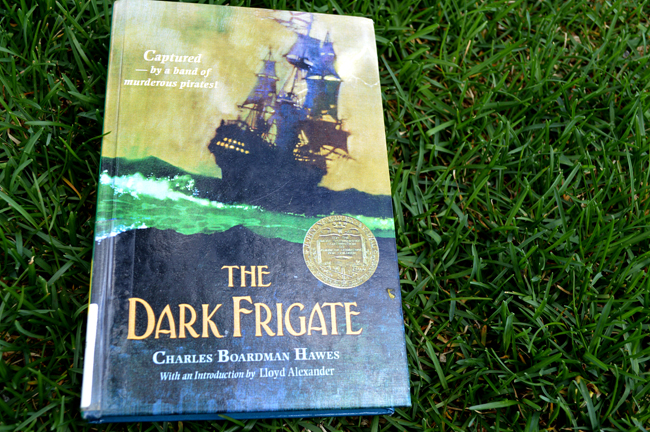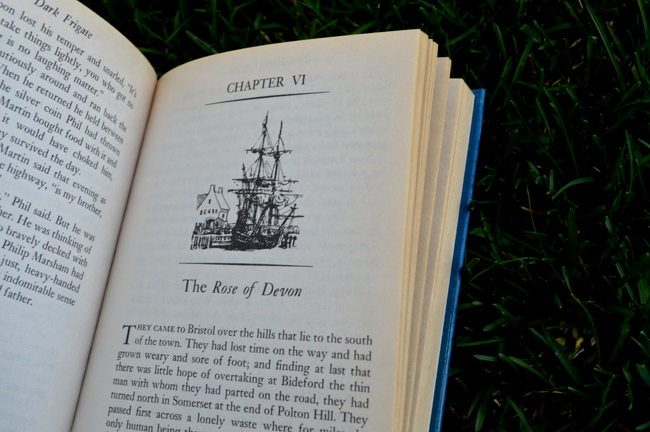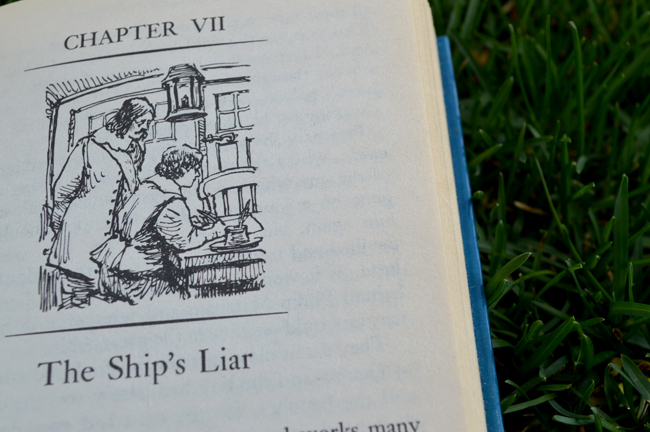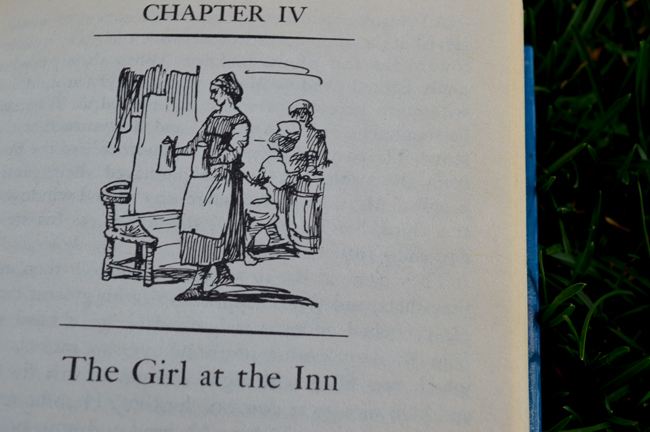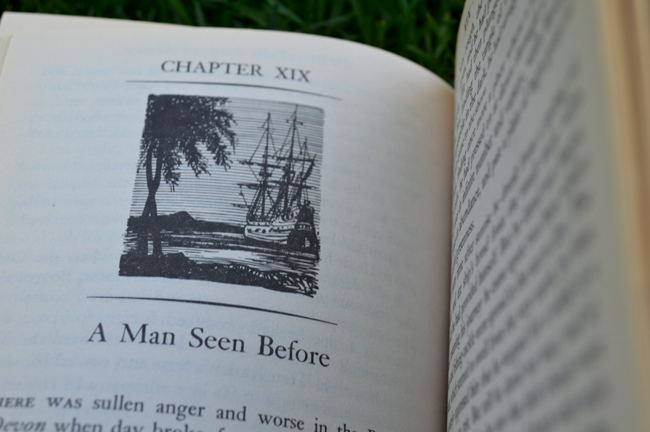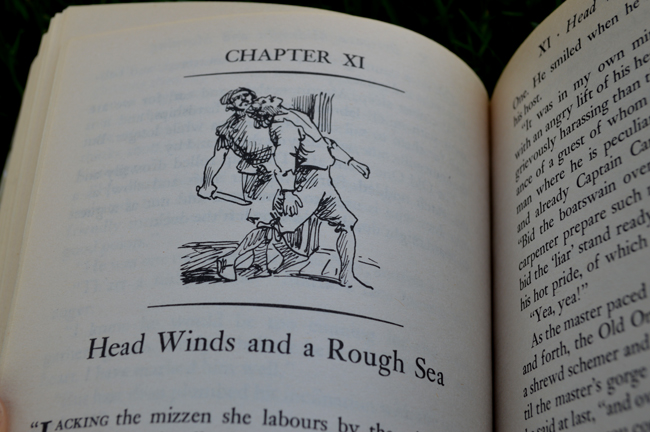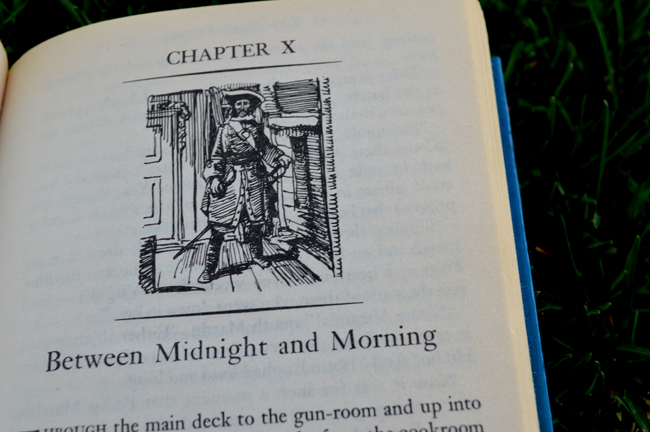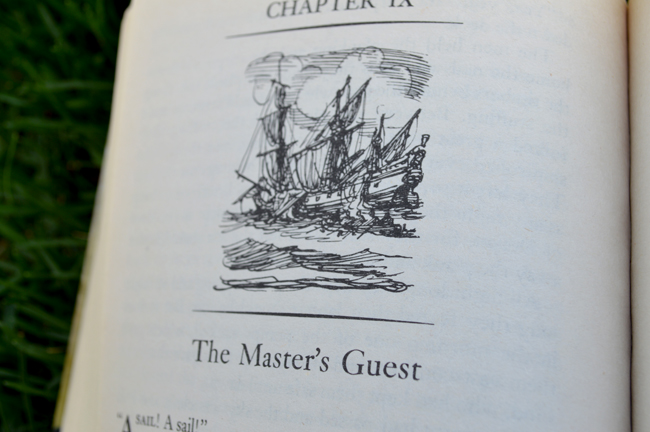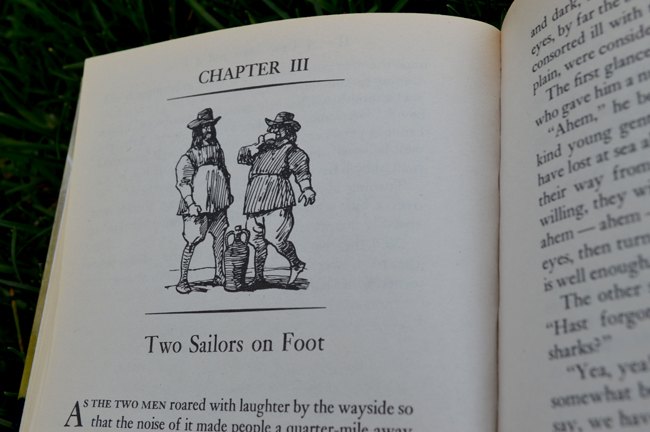The third Newbery winner, from 1924, is a demanding read: a pirate tale set in the 17th century Atlantic World. What makes The Dark Frigate both remarkable and challenging is the way that author Charles Boardman Hawes meticulously researched mid-1600s’ sea-life and speech and poured it into his pirate yarn. The story centers around a young man named Phil Marsham, who recently has lost his sailor father and is trying to make his way in the world. But Phil, through choice and chance, gets caught up with some pirates who force him into service, and when he finally escapes, he and the pirates are all caught and brought to trail for piracy.
The more time passes since I read The Dark Frigate, the more I like it. But in the middle of it, I was never entirely sure what was happening, because the narrative style and the terminology were so challenging. I really wanted to like it because there is a lovely essay by Lloyd Alexander in the beginning of the book about how much he loved Dark Frigate, and I love Lloyd Alexander, so I wanted to love Dark Frigate, but it was tough.
What I liked. In the end, when I finally decided that I did in fact understand what was going on, I thought that the third quarter of the book, when the pirates have the ship and are trying to swindle and steal was my favorite. Hawes’ pirates, like all his characters, are dark and deep. There is no love among thieves, or pirates, and various pirates are looking out for themselves. The pirate ship sneaks into harbor at night, goes by land to attack a village, fails, retreats to the ship, and sails away in the night. The next morning they turn around and go back to the island and tell the village that they just ran into some nasty pirates, and could they take shelter there (before of course trying to rob them again, which fails). It’s comedic and horrible all at the same time.
What was interesting. The complexity of vocabulary and diversity of 17th century English persons was pretty impressive. Hawes has someone speaking 17th century Scottish (we understand almost none of it; just by context can you figure out what the smith is trying communicate). Hawes has rich and poor people, scholarly and street-wise persons, men and women (women with names!), and a complex and nuanced view of what honor and the right choice could be. It’s hard to explain how his character sketches and overall story are so strong because the actual narrative experience of wading through the prose was so difficult.
What were some limitations. It’s a tough read. The vocabulary is tough. The narrative point of view switches so you only know that the whole paragraph you just read was in fact still about the main character only at the end. The main character is older, the style is older, and it would be a hard read for your average middle-schooler. It’s just really advanced for a children’s book. In the end, I thought that Hawes desire to capturing the era accurately got in the way of conveying the era in the most compelling way for children.
Why I think it’s a Newbery. It’s an impressive, historically accurate, pirate-based, high-seas adventure. There are ships, and murders, hangings, double-crossing, bar-maids, drunken sailors, boisterous cooks, and dashing Spaniards. It has a full cast of great characters who represent pre-civil war England.
Similarity to other Newbery winners. Dark Frigate, like Dr. Doolittle, and Story of Mankind, definitely has an international scope, still mostly from the shores of England. It’s still primarily about young and older European men.
What it teaches me as a writer. I think that the way that Hawes is able to so succinctly describe a complex character is really inspirational, but his book is also a caution against getting so wrapped up in trying to do a particular thing (theme, historical accuracy, etc.) that it can get in the way of communicating the story clearly to your audience.
Have you read The Dark Frigate? What is your favorite pirate or sea adventure book?
